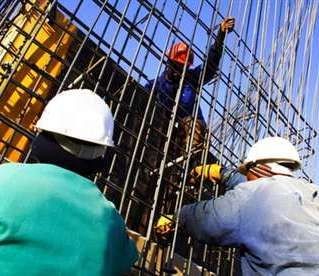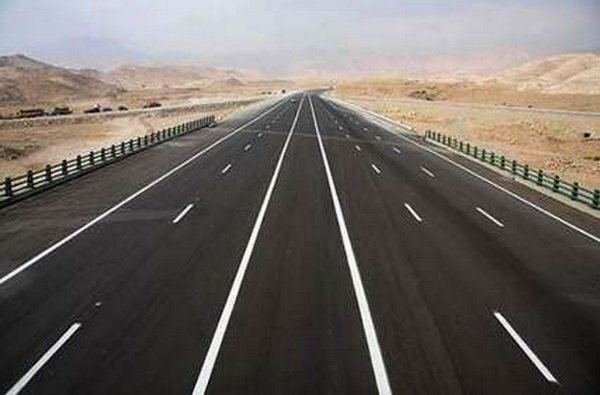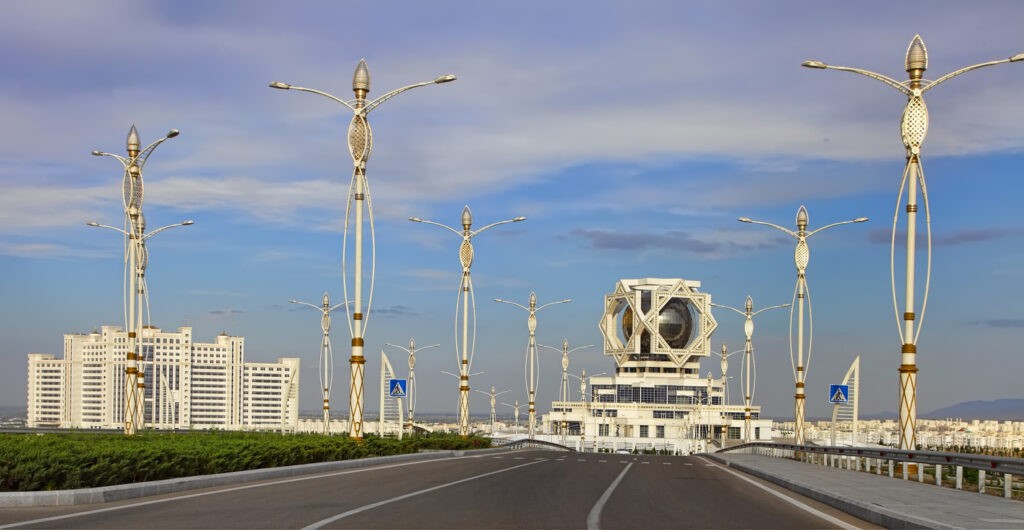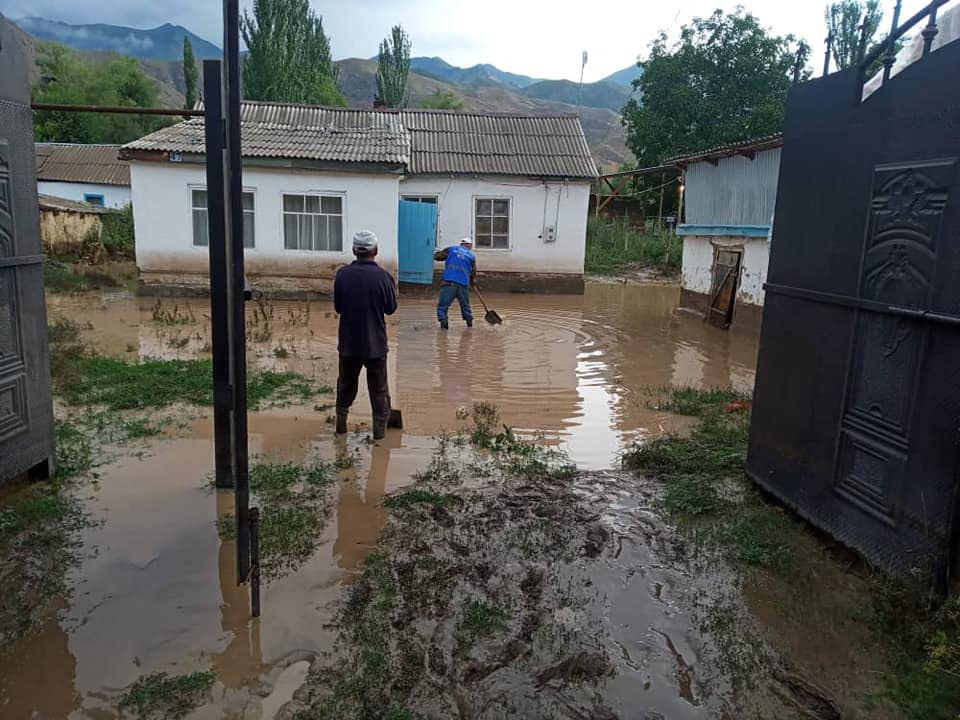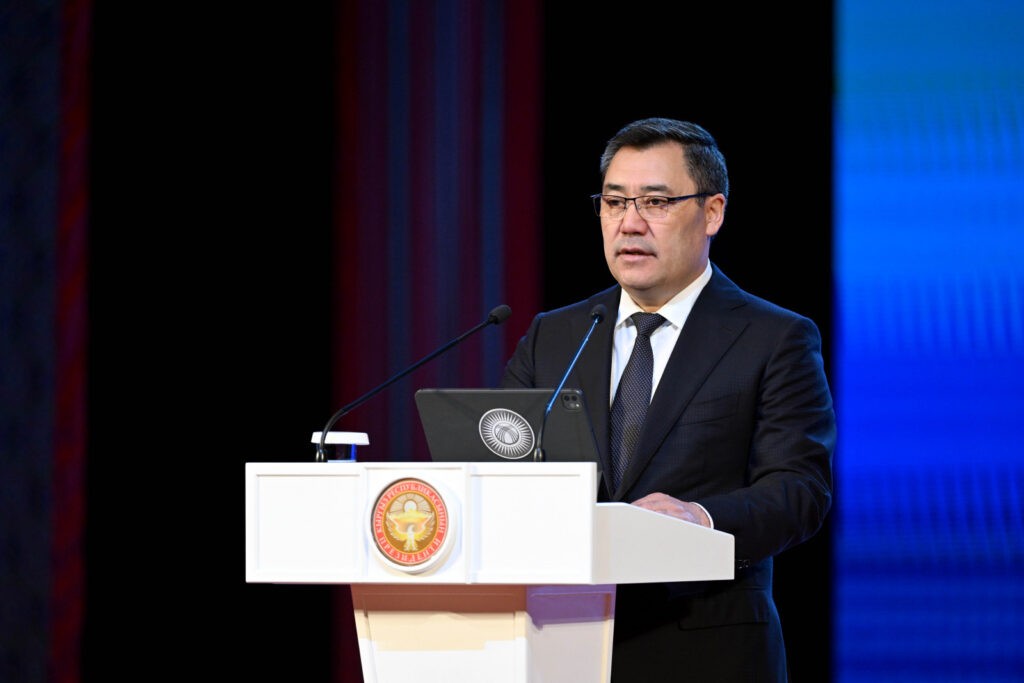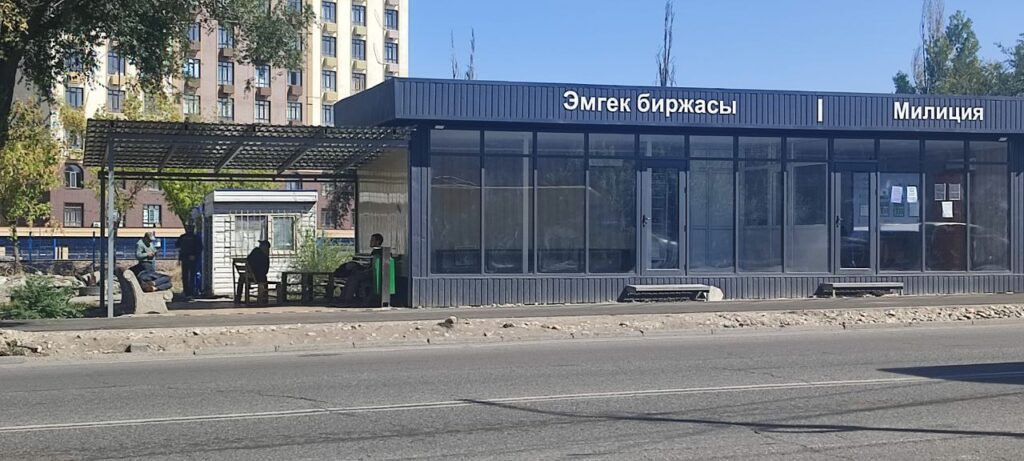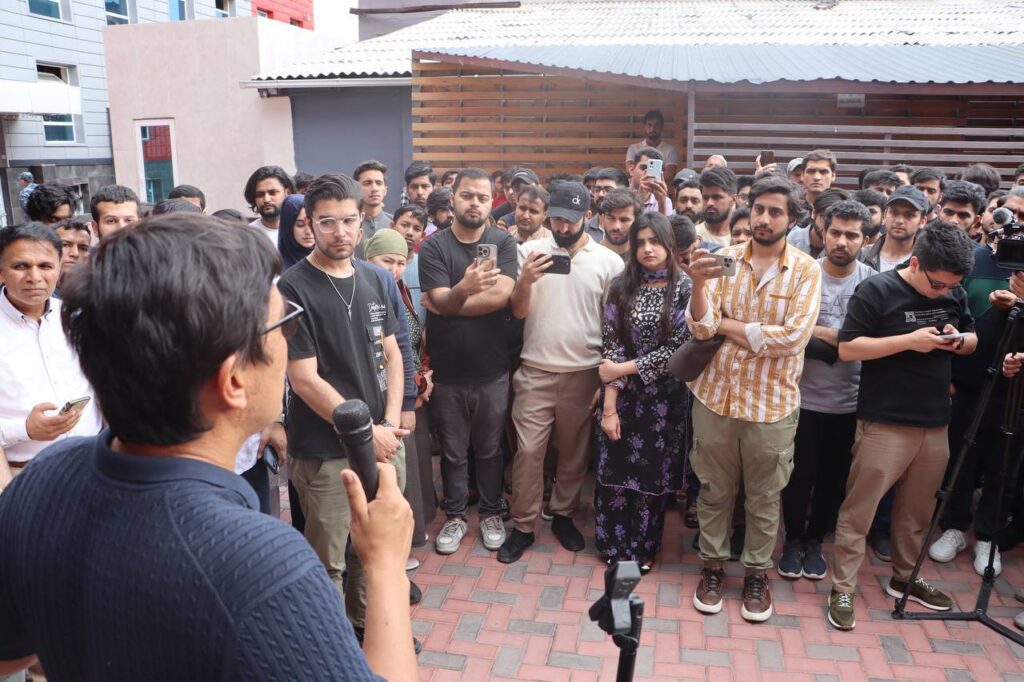BISHKEK (TCA) — Several illegally constructed facilities have recently been demolished in the Kyrgyz capital including a 4-storey office building in downtown Bishkek (at the intersection of Toktogul Street and Manas Avenue).
The building was built illegally because the company had no permits, so construction supervision was not conducted and the builders have stepped out of the red line. Besides, they did not meet construction and fire regulations, the State Inspectorate for Environmental and Technical Safety of Bishkek said.
However, the construction of a 19-storey building continues at Frunze Street, opposite the circus, despite the prosecutor’s order to suspend the construction and initiate a criminal case.
Violations in construction
Compliance with the safety standards of construction of apartment buildings will be taken under special control of the Government, First Deputy Prime Minister of Kyrgyzstan Mukhammetkaly Abulgaziev said at the first meeting of the Interdepartmental Working Group on land management and provision of permits.
The working group will work on land issues including provision of land plots for temporary use for the construction of various facilities and renewal of the Land Code. It will also consider strategic planning for urban development, illegal construction of facilities, and develop rules for issuing permits for the design and construction of various facilities.
Bishkek has seen a rapid growth in the construction of multi-storey buildings since 2011. However, such facilities do not meet basic safety requirements and have been built in unauthorized areas without permits from the state authorities, the State Inspectorate for Environmental and Technical Safety of Bishkek said. Administrative measures were taken against 80 illegal objects in 2016 and 2017.
In 2016, the Bishkek Prosecutor’s Office checked 260 construction facilities, at 117 of which violations of laws were revealed. As a result, some construction companies lost their permits and stopped operating at the facilities. Last year, 129 buildings were demolished in Bishkek, the Bishkek Municipality reported.
Corruption
The matter is that government agencies are struggling with the consequences of illegal construction instead of preventing it.
To obtain permits for construction of multi-storey buildings, it takes a very long time, up to two years, construction companies say. Investors cannot wait that long and the companies begin construction without permission.
The authorization documents are obtained corruptly, the builders say. Construction companies pay bribes for connection of new buildings to gas pipelines and heating networks.
Booming sector
The construction sector is among the fastest growing sectors in Kyrgyzstan. In 2016, Kyrgyzstan’s construction companies began to recover after the crisis of 2015.
According to the National Statistics Committee of Kyrgyzstan, 5.5 thousand residential buildings with a total area of 654.5 thousand square meters were built in the first ten months of 2016 in Kyrgyzstan, 6% more than in the same period of 2015. 2015 saw an 8% decline.
Construction of several large projects has been resumed, and new facilities are now under construction. In January 2017, Kyrgyzstan commissioned 38.5 thousand square meters of housing, 1.6-fold more than in January last year, the National Statistics Committee said.
The Government forecasts a 6.3% annual growth in the construction sector for 2018-2020.
Building materials market
Local producers partly meet the needs for bricks, cement, slate, lime, and reinforced concrete products. Large companies are importing construction materials and resell them to small sellers, private entrepreneurs and construction companies.
More than 100 companies are engaged in the production and sale of building materials in Kyrgyzstan. In 2016, they imported 21.3 thousand tons of cement, reinforcement, metal, timber and glass. Most of construction materials were imported from China, Uzbekistan, Turkey, Azerbaijan, and Ukraine, totaling 1.7 billion soms last year.
Kyrgyzstan produces the bulk of glass to meet the construction needs. Over the first 11 months of 2016, glass enterprises produced 16.2 million square meters of sheet glass, 1.4 million square meters more than in 2015.
After Kyrgyzstan’s accession of the Eurasian Economic Union and the lifting of customs control at the border with Kazakhstan, large volumes of cement are now imported from Kazakhstan, and domestic cement has become uncompetitive in price terms. As a result, the local cement production has decreased.
According to the State Committee for Industry, Energy and Subsoil Use, the construction materials sector accounts for about 10% of the total industrial production in Kyrgyzstan and about 5% of its GDP.
About 300 business entities are involved in the production of construction materials, with about 10 thousand employees. They produce construction materials worth 10-15 billion soms annually.
The Chui oblast including Bishkek produces about 80% of all construction materials in the country, and the Osh, Batken, and Jalal-Abad oblasts in the south of the country up to 15%.
Large deposits of carbonate and siliceous raw materials suitable for cement production have been explored in the country. There are also large deposits of clay and limestone needed for the glass industry and production of bricks and facing slabs.
